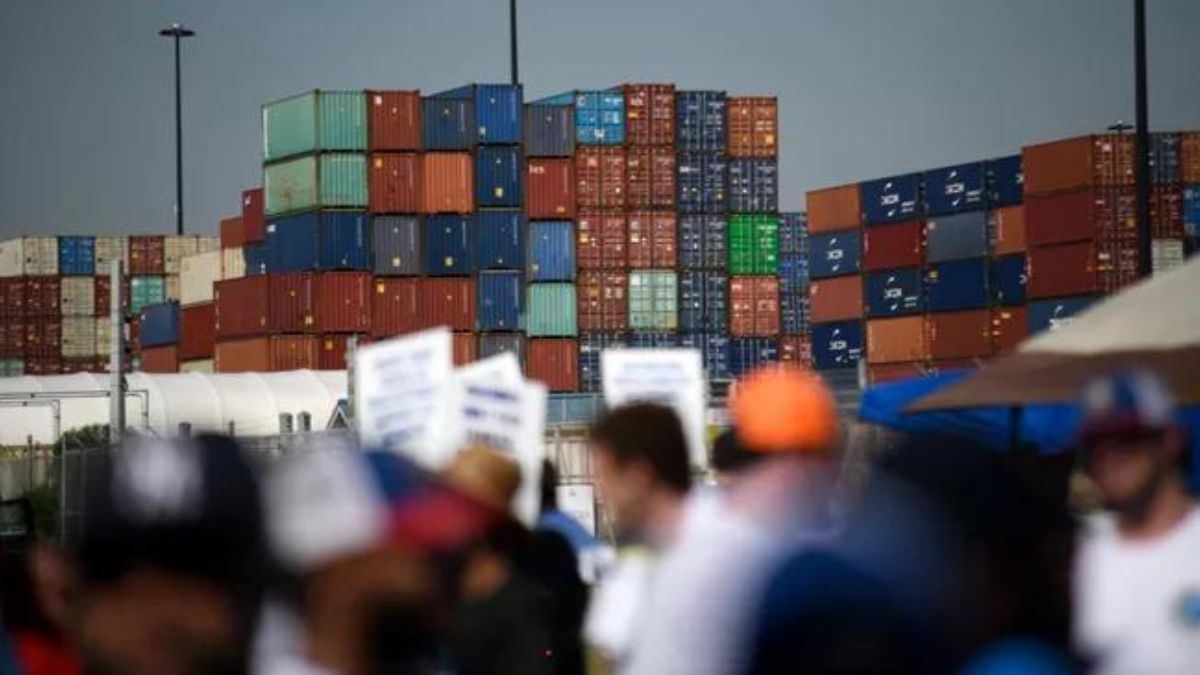A massive strike is underway involving roughly 45,000 longshoremen who work at the nation’s major ports along the East and Gulf Coast.
On Tuesday (October 1), longshoremen with the International Longshoremen Association (ILA) went on strike against companies, port authorities, and terminal operators represented by the United States Maritime Alliance (USMX), pledging to fight for as “long as necessary” to get their demands met, per Quartz.
The strike will likely have a major impact on the U.S. economy as nearly every industry relies on the ports to deliver equipment, food, and supplies every day. According to the Mitre Corporation, ports and facilities handling roughly 51 percent of the nation’s overall port capacity will be impacted by walkouts.
“These people today don’t know what a strike is,” ILA President Harold Dagget said in a video last month, noting the “crippling” impact the strike could have on the economy. “Everything in the United States comes on a ship.”
Industries, including automakers, retailers, toymakers, and even firms selling Halloween costumes, that rely on materials like steel and lumber could see rippling effects from the strike. Non-perishable items will likely be held at the ports until action is taken. Companies like Goodyear, Michelin, General Motors, Hyundai Motor Co., Bob’s Furniture, Home Depot, and Ikea are among the top importers at the East and Gulf Coast ports affected by the strike.
The agricultural industry is also expected to take a hit due to the walkouts.
Grocery stores and restaurants may face issues with getting fresh fruit and vegetables as the strike persists. The majority of the nation’s bananas, cherries, canned food, hot peppers, chocolate, and spirits arrive at ports where the ILA works.
Economists are estimating that the strike could cost the U.S. economy anywhere from $540 million to up to $5 billion per day. Up to 100,000 jobs are expected to be impacted, according to economists.
“It would be unconscionable to allow a contract dispute to inflict such a shock to our economy,” Suzanne Clark, the president of the U.S. Chamber of Commerce, said in a letter to President Joe Biden on Monday (September 30). “[The ports] are also critical to many small businesses including trucking, restaurants, and others that rely on these ports for their livelihood.”
The Black Information Network is your source for Black News! Get the latest news 24/7 on The Black Information Network. Listen now on the iHeartRadio app or click HERE to tune in live.




